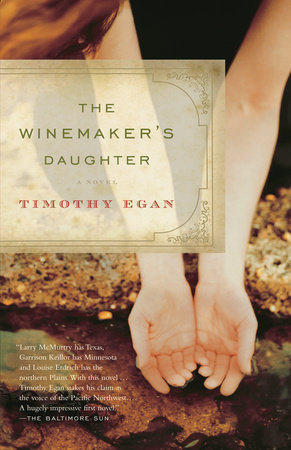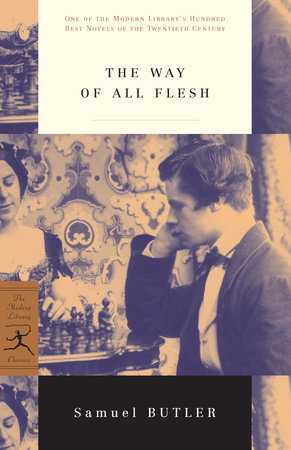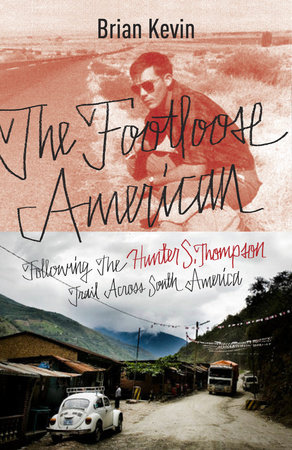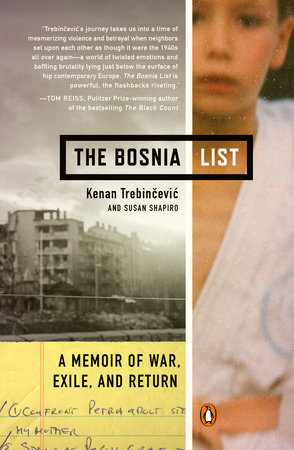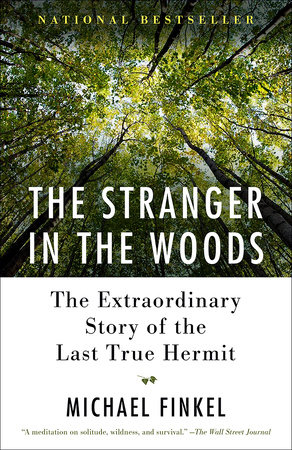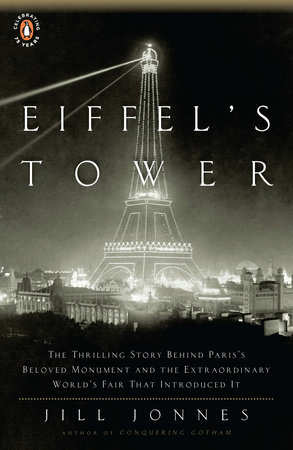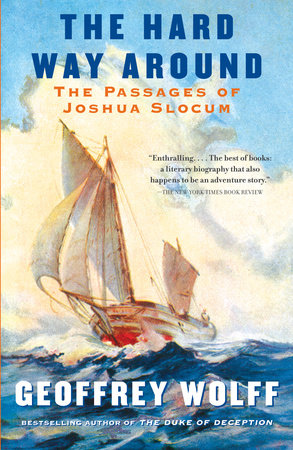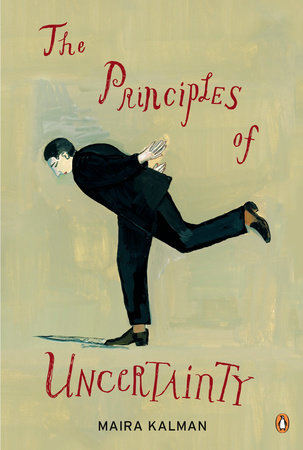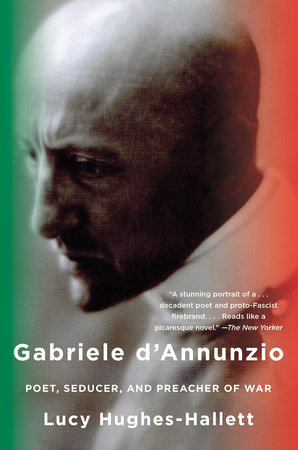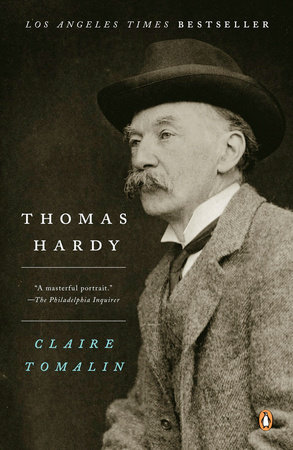A Conversation with Tim Egan
author of The Winemaker’s Daughter
Q: In THE WINEMAKER’S DAUGHTER, water, or lack of it, incites murder, betrayal and hatred. Could this ever happen outside of fiction?
A: It happens all the time. Wars are fought over water, family empires rise and fall, people live and die. Water is the most consistent shaper of destiny on the planet, and it’s finite. The history of the American West is all about defying nature, and bringing water to the most unlikely of places — running uphill to money, as the saying goes. It took me some time to realize this, but it was a Texas oilman, I think, who told me he thought water would be more valuable than oil in our time.
Q: “Women marry for money, security and a gene pool,” one character states. “Matches born of pure love are doomed.” How true do you think this is?
A: Certainly, the science seems to show this. But my lead character, Brunella Cartolano, is fighting against a biological imperative. She is a rebel and a romantic, and has always believed in romantic love, in following impulse, even with all the consequences.
Q: Brunella Cartolano is an extraordinarily passionate woman in a world of powerful, complicated men. Who or what inspired this character?
A: It was no easy thing to try and inhabit the mind of a woman, to be Brunella Cartolano. She is a compilation, in part, of a couple of women who are close friends of mine, and have confided in me over the years, sharing their fears and the yearnings of their hearts, their ambitions and insecurities. I wanted to create a strong woman, but also someone who is a seeker, someone who is not afraid to fail. Men tend to be more linear, more one-dimensional in how they bull ahead. I like Brunella’s struggle, her more circular pattern to anchor herself and sort through the troubles of her life. Brunella Cartolano has large appetites — spiritually, sexually, intellectually. She believes in pure art — as in her father’s winemaking — as a noble quest. But also, hers is an old American struggle, an old story for all of us, really — longing and belonging. Where do we belong? How do we fit? What is our place in the world?
Q: You write like an expert on so many subjects including winemaking, climbing, forest-fires, cooking and fishing. Did you have any interest in these things before you began writing THE WINEMAKER’S DAUGHTER?
A: I grew up in Eastern Washington state, and spent my boyhood summers in Montana and Idaho. There was always a forest fire. And Smoke Jumpers were early heroes of mine — these extraordinary people who fall from the sky into the heart of some of the most rugged terrain in the world. They are selfless, by and large, and even kind of mythic. They have their own code. I got to know a lot of Smoke Jumpers covering fires over the years, including two very tragic fires that rank among the worst ever for Smoke Jumpers. I learned to fly fish and climb mountains at an early age. Again, this was just part of what you did growing up as a child of the West. My grandfather taught me how to fish, on Rock Creek in Montana. And I first climbed Mount Rainier right out of college. These are rights of passage for many Northwest kids.
Wine and food came from living in Italy. We moved our family to a little village outside Greve in Chianti in 1997, a place so small it is not on most maps, called Strada in Chianti, which means Street in Chianti. Our home was in the world’s oldest designated wine region — the Chianti Classico DOC — or so the Tuscans like to say. We lived on the second floor of a two-story farmhouse in the middle of an ancient vineyard. On the first floor was a wine maker, an older man, who made a very good Chianti which he sold to people who hauled 60-gallon containers to his doorstep. He also pressed a terrific olive oil, and raised chickens and roosters, most of whom ended up on the grill, with garlic rubbed over them. I had several life epiphanies while living in Italy, and one of them was a new way to look at food and wine — as pleasure and culture, certainly, but also as way to connect your life to the rhythms of the land.
Q: At one point Angelo Cartolano says of his son, “How can somebody who came from my flesh and soul be so much like a stranger? I look at him in the dining room and I think somebody has broken into my house, a burglar with my last name.” Are there any unforgivable acts within a family?
A: Betrayal is the ultimate unforgiveable act. And there is no worse kind than family betrayal. I think that’s why The Godfather is such a universal story — it’s about family and betrayal. In The Winemaker’s Daughter, one of the things I wanted to do was to break the encrusted stereotype of Italians as gangsters and brutes, and write about the Italians I lived with — and grew up with, most of them from Naples or Sicily — who had a family bond that is lacking in much of Western culture. By trying so hard to assilimate — changing his name to Bob, moving to a tower in Texas, valuing money over land — Roberto Cartloano has washed out his family loyalty. So when Angelo says that about his son, it is the saddest thing he can say, and it also points to why Brunella is so driven to hold the family together. She feels the burden, the duty of family above all else, and her brother does not.
Q: This novel raises many questions regarding the issue of reparations for past sins. Can America ever fully repay its debts? And how easy was it for to you remain un-biased in your writing of this?
A: Remember, Abraham Lincoln said we cannot escape history. And yet, historical illiteracy abounds in our country. I quote an old saying of the Teton Sioux at the start of the book: “A people without history is like wind on the buffalo grass.” We think that by moving around, or changing jobs or spouses or names, we can simply recreate ourselves without any tethers to the past. But our past is with us, no matter how we try to shake it. I don’t necessarily believe in reparations for past misdeeds; there’s something vaguely Calvinistic about it. But I do believe that we all carry some of the load from the sins our fathers, and with that burden comes responsibility. Most of the American Indians I know don’t want anything from the average American except to be seen as real people who are trying to hold onto something that was nearly erased from our country, after a presence of better than 10,000 years. As far as remaining unbiased, my role here is simply to be a storyteller. The journalist was used in research, but left behind in the writing.
Q: Culture especially that of the Italians and American-Indians– plays a strong role in your storytelling, with so many of the characters fighting to retain their identity. One character explains that “Americans take the authentic and smooth it, sand off the rough edges, and recreate its essence.” Is this what defines American culture?
A: No, but that’s a big part of what the novel is all about: the search for place and authenticity. Everybody in this book is looking to anchor themselves — the Indians, the Italian-Americans, the faceless developer, the Nordic fisherman, the oh-so-precious city folks. I’ve been around American Indians all my life. And then, after living in Italy, I was struck by how both Indians and Italians survive on certain creation myths. We all need these narratives of place in order for our lives to make sense. The character who talks about how Americans take the authentic and smooth it out is expressing a somewhat cynical point of view that many of us live by — that is, that we can simply replace the authentic with a knockoff. I know we are eminently capable of doing this, but I’m not sure it’s good in the long run.
Q: Angelo Cartolano, though from Italy, would die rather than give up his home in America while his daughter, Brunella, is drawn to her father ‘s birth-place. What does home mean to you?
A: In Italy, our friends were mostly land-rich and cash poor. But they all swore on their nonna’s grave that they would never — ever — sell the family home. It is sacred. Angelo understood this, and Brunella is struggling to comprehend what this loyalty to place means.
I’m a third-generation native of the Pacific Northwest, which is nothing compared to Indians whose families go back eons, or even Italians who traced their lineage to a place since the days of the Etruscans. But I am trying to get my children to connect to the Northwest for all time. I tell them, as Brunella says at one point in the book, you build up equity in memories, and after a while that storehouse is such that you and the place are one and the same. You can’t leave, even if you want to. I buried my grandfather’s ashes in a glacial stream born on Mount Rainier. It was one of the rituals that helped me find my own sense of home.
Q: “I’m neutral. I’m apolitical. I’m asexual,” a character worth over seventy million dollars announces, “I have no convictions either way. I don’t believe in God and I don ‘t believe in love. I couldn‘t give a damn what happens to the Seattle Mariners, or if any particular bottle of wine had a good life or not. I care about what is intellectually and logically correct.” Is apathy the key to success?
A: The character who says this lacks passion — he’s somewhat envious that he can’t fall in love with things as Brunella does, which is of course what gets Brunella in trouble. There are two life choices presented here — the person who lives by caution, shielded from love and failure, and follows a joyless pursuit of success, and the person who takes risks, who loves and believes, and gets hurt by following her heart.
Q: One question repeatedly goes unanswered, Who lives better Italians or Americans? So . . .?
A: We had this debate while living in Italy. One day Sergio, the winemaker who lived below us, came down with a terrible eye infection. He was taken to a hospital in Florence, where he received extraodinary care by one of Florence’s top surgeons, and came home fully healed. Sergio had no health insurance, but they took care of him. That could not happen, as a general rule, in America. Our friends in Italy place more value on simple pleasures — food and wine, of course, but friendships, as well, and not hurrying through life as if it’s a perpetual rush hour. On the other hand, the Italians are still somewhat xenophobic about other races, and many of the young never dream of living beyond their class.
Q: This is your first novel, after three books of nonfiction. How does writing fiction compare? And what s next for you?
A: Fiction is very hard — you’re making it all up! But creating characters from scratch, and then complicating their lives, is great fun. I found the creative process of building a novel exhilarating. With nonfiction, you have the outline, you’re following the map, trying not to screw up the story, trying not to get in the way. With fiction, you have to allow for a certain amount of serendipity to happen, and then trust it. I have two books in mind, one about what may have been the most desperate time in American history, a chapter of the 20th century largely untold. The other is a memoir of going to an all-boy Catholic school, looking at the tensions between faith and reason, and why friendships are so fierce at a certain age. But reality keeps intruding.
